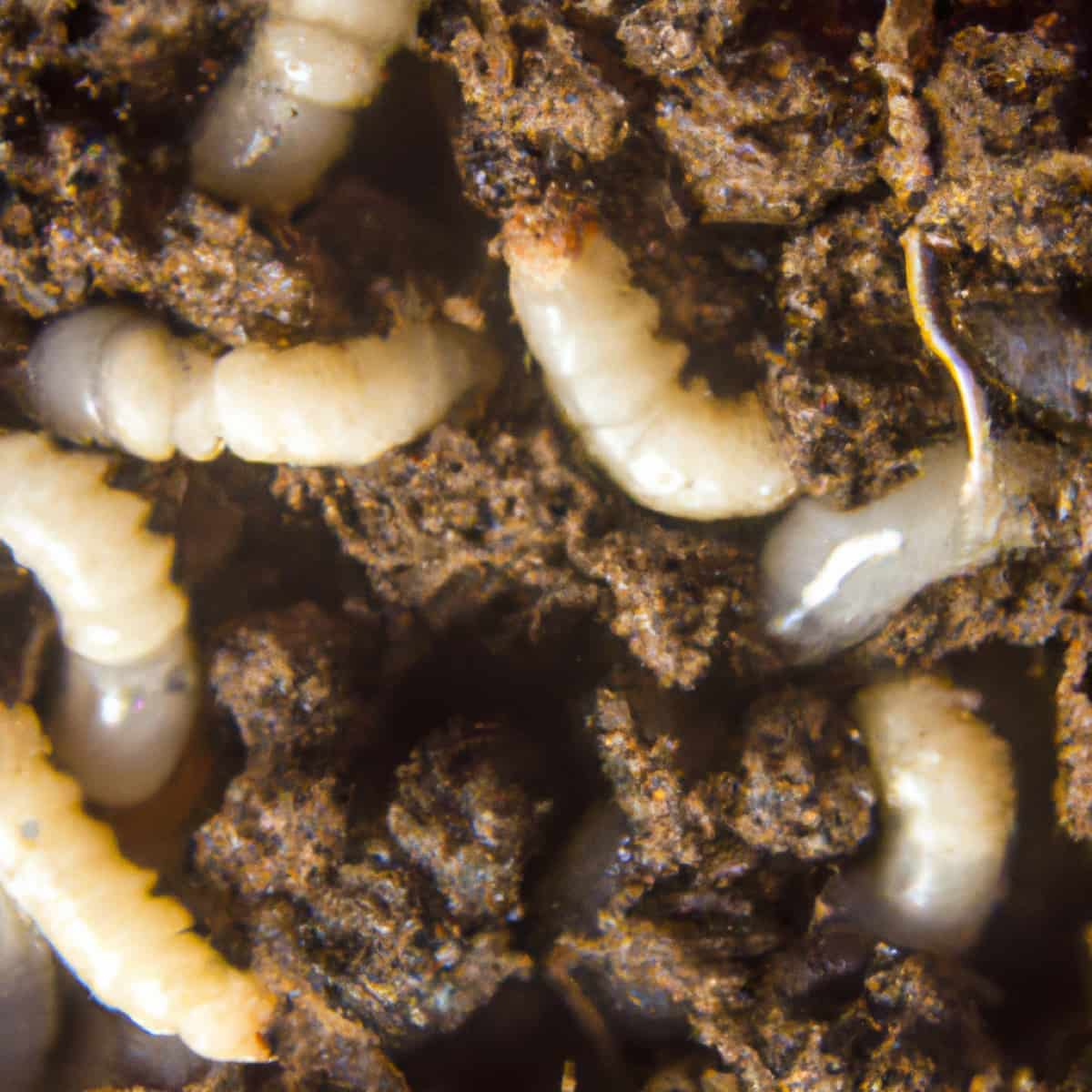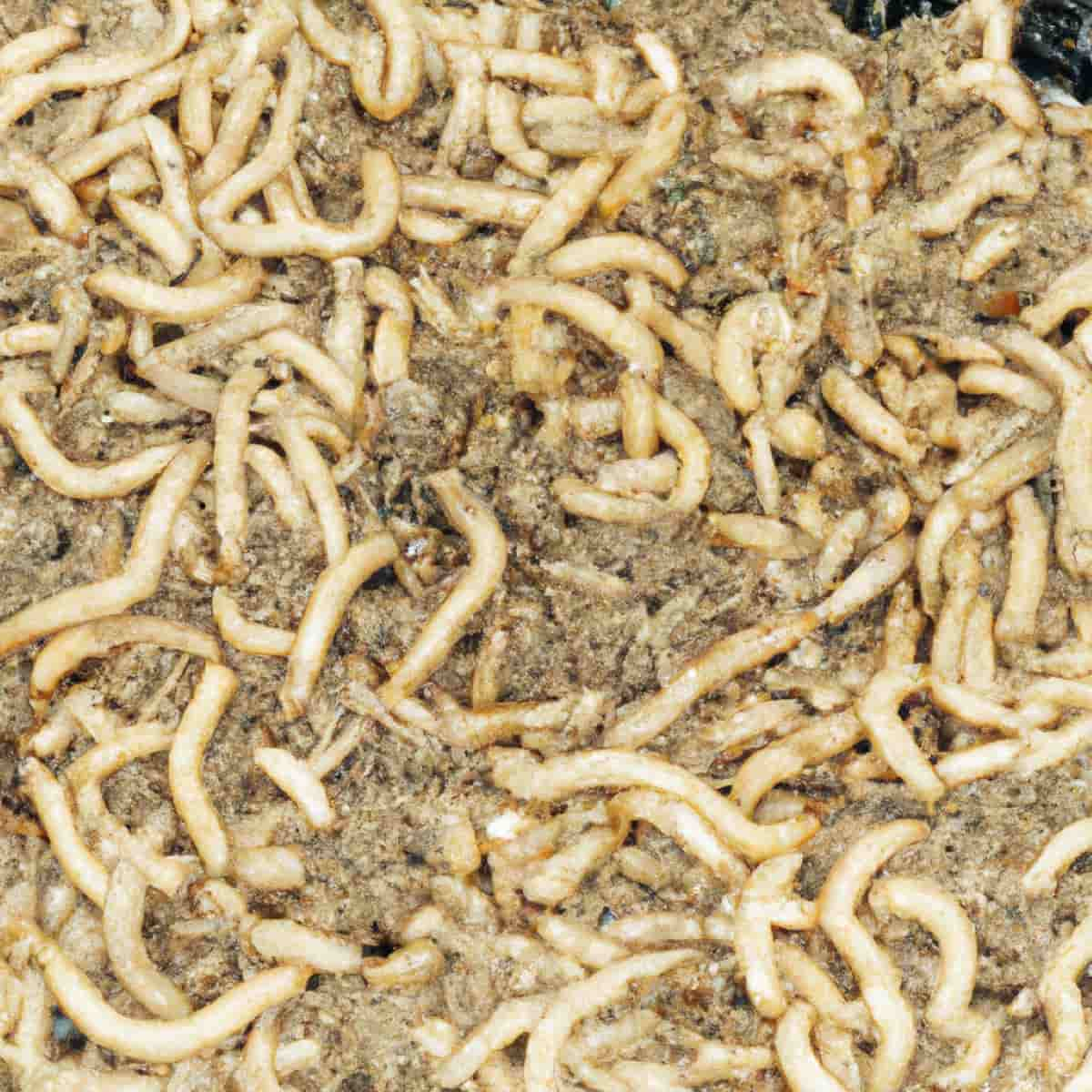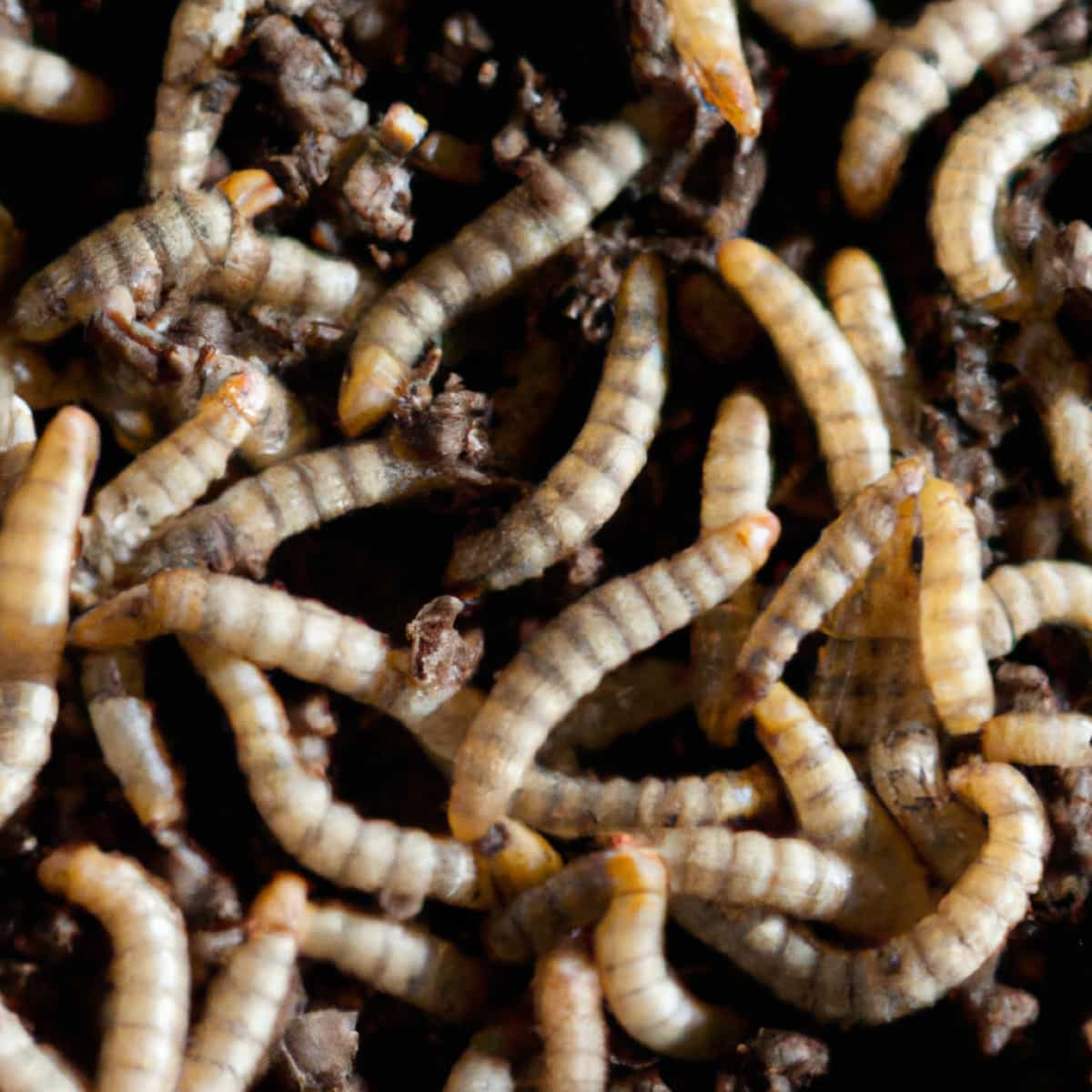Root maggots are small, white larvae that feed on the roots of plants. They belong to the Anthomyiidae family in the Diptera order and are commonly found in vegetable gardens. These pests can cause significant damage to roots, leading to wilted leaves and stunted growth.

How to Identify and Control Root Maggots
Effective Root Maggot Identification Techniques
- One of the easiest ways to identify root maggots is by observing the adult flies that lay eggs near susceptible plants. The flies have dark green or blue body and red eyes. Root maggots are active in the early morning and late afternoon.
- Another way to detect root maggot infestations is by inspecting plant roots for damage caused by the larvae feeding on them. Roots may appear brown and decayed, with tunnel-like holes chewed into them.
- Stunted growth and wilting leaves may also signal a root maggot problem. These symptoms occur when the larvae feed on important parts of the plant’s vascular system, impeding nutrient uptake.
- Yellowing or browning of foliage around leaf margins is another telltale sign of a potential infestation, as it shows stress due to reduced water intake.
Organic Methods for Root Maggot Control
- Organic gardening practices can help reduce root maggot populations in your garden. One effective method is crop rotation, which involves yearly moving plants to different garden areas to disrupt the root maggots’ life cycle.
- Another organic approach uses beneficial nematodes, microscopic worms that feed on root maggots, and other soil-dwelling pests.
- You can also make insecticidal soap using natural ingredients like castile soap, vegetable oil, and water. This solution should be sprayed directly onto affected plants once a week until infestations subside.
- Planting companion plants such as Marigolds, Onions, and Garlic around susceptible crops may also deter root maggot infestations due to their strong scent or chemical properties.
Preventing Root Maggot Infestations in Your Garden
Consider crop rotation – this means moving crops around each year so that any eggs or larvae left behind by the previous year’s plantings won’t have access to new hosts. You’ll also want to remove diseased or damaged plants as they attract pests promptly. Avoid over-fertilizing your soil, as this can make it more attractive to female flies looking for places to lay their eggs. Use compost instead of synthetic fertilizers and build healthy soil by adding organic matter like leaf litter or manure.
Chemical-Free Remedies for Root Maggot Management
Chemical-free remedies are a safe and effective way to control root maggots in your garden. One of the best ways to control root maggots is using row covers. These covers are a physical barrier, preventing adult flies from laying eggs on your plants. This method works especially well for young seedlings more vulnerable to infestations.
In case you missed it: Greenhouse Pest and Disease Management Strategies

Companion planting is another chemical-free solution to help deter root maggots in your garden. Certain herbs like mint, rosemary, and sage have strong scents that repel flies and discourage them from laying eggs near your plants. Consider incorporating beneficial nematodes into your soil. These microscopic organisms feed on root maggots and other harmful insects, leaving beneficial ones unharmed.
Early Signs of Root Maggot Damage in Plants
- Root maggots are known to cause serious damage to plants, especially those in the cabbage family. It’s essential to be aware of the early signs of root maggot damage so you can take action before it’s too late.
- One of the most significant indicators is yellowing leaves.
- Another sign is stunted growth when young roots become damaged and cannot absorb nutrients effectively. As a result, your plant may stop growing as expected or even die altogether.
- Watch for adult flies hovering around your plants’ soil surface during warm weather conditions. They will likely lay eggs nearby and soon hatch into hungry larvae ready to feed on your precious crops.
Integrated Pest Management Strategies for Root Maggots
- Integrated Pest Management (IPM) is a holistic approach to pest control that aims to minimize chemical pesticides and instead utilizes various management techniques. IPM strategies for root maggots involve preventing infestations, monitoring populations, and utilizing natural predators
- To prevent infestations, it’s important to rotate crops yearly to avoid planting the same family of vegetables in the same spot. Regularly inspecting plants for early signs of root maggot damage can help catch potential issues before they escalate.
- Monitoring population levels involves using sticky traps or pheromone traps placed near plants susceptible to root maggots. This allows gardeners to track population trends and find if further action needs to be taken.
- Utilizing natural predators such as parasitic wasps can also effectively control root maggot populations. These wasps lay eggs inside the maggots, hatching and feeding on them from within, eventually killing them off.
Natural Insecticides for Controlling Root Maggots
Natural insecticides are derived from plant or mineral sources and offer an eco-friendly alternative to synthetic pesticides. One effective natural insecticide for controlling root maggots is neem oil. It is made from neem tree seeds and contains azadirachtin, which repels and disrupts the growth cycle of many pests, including root maggots. To use neem oil, mix 1 tablespoon of neem oil with about 1 gallon of water and carefully spray it onto affected plants.
Another effective natural option is diatomaceous earth (DE). DE is a powder made from fossilized algae that can dry out and kill insects upon contact. Sprinkle DE around the base of affected plants or directly onto their leaves to deter root maggot infestations. Using natural insecticides for controlling root maggots offers a safe and environmentally friendly option for gardeners looking to protect their crops without harming beneficial insects or polluting our ecosystems.
Root Maggot Control in Vegetable Gardens
- Root maggots can be a major problem for vegetable gardeners, as their larvae feed on the roots of plants and cause stunted growth or even death. However, several effective methods exist for controlling root maggots in your vegetable garden.
- One organic method uses row covers to prevent adult flies from laying eggs near plants’ roots. Additionally, yearly rotating crops can help disrupt the life cycle of root maggots and reduce infestations.
- Another option is to use natural insecticides such as neem oil or pyrethrin-based products. According to package instructions, these should be applied directly onto the soil around affected plants. You could also consider using beneficial nematodes that attack and kill root maggot larvae in the soil without harming other organisms or plant life.
Best Practices for Root Maggot Treatment
- It’s essential to ensure that your garden soil is well-drained since moist conditions attract root maggots. Additionally, rotating crops annually can prevent the buildup of infestations in the soil.
- Several non-toxic remedies are available if you’ve identified a root maggot problem. One option is coating plants with insect-repellent substances such as neem oil or garlic spray. Alternatively, introducing beneficial nematodes into the soil can be an effective long-term solution to control populations naturally.
- Insecticides may also be necessary to manage severe infestations effectively. However, choosing products specifically targeting root maggots is crucial while avoiding harmful chemicals that could harm other insects or pollinators in your garden.
- Integrating pest management strategies such as crop rotation and companion planting can also aid in reducing recurring problems with these pests.
In case you missed it: How to Prevent Pests and Diseases in Potted Plants

Conclusion
Root maggots can harm crops like carrots and onions but also affect other vegetables such as radishes and turnips. Identifying them early is essential to take action before it’s too late. By catching root maggot infestations early on, you’ll have a better chance of controlling their populations without resorting to harsh chemicals or pesticides.
- Feed Your Flock for Less: Top 10 Tips to Save on Chicken Feed
- Ultimate Guide to Ossabaw Island Hog: Breeding, Raising, Diet, and Care
- Hatching Answers: The Top 10 Reasons Your Chickens Aren’t Laying Eggs
- Eggs and Economics: Breaking Down the Cost of Raising Backyard Chickens
- Defend Your Greens: Proven Methods to Keep Iguanas Out of Your Garden
- Ultimate Guide to Cinnamon Queen Chicken: A Comprehensive Guide for Beginners
- Ultimate Guide to California Tan Chicken: Breeding, Raising, Diet, Egg-Production and Care
- Ultimate Guide to Marsh Daisy Chicken: Breeding, Raising, Diet, and Care
- 10 Types of Chicken Farming Businesses You Can Start for Profits